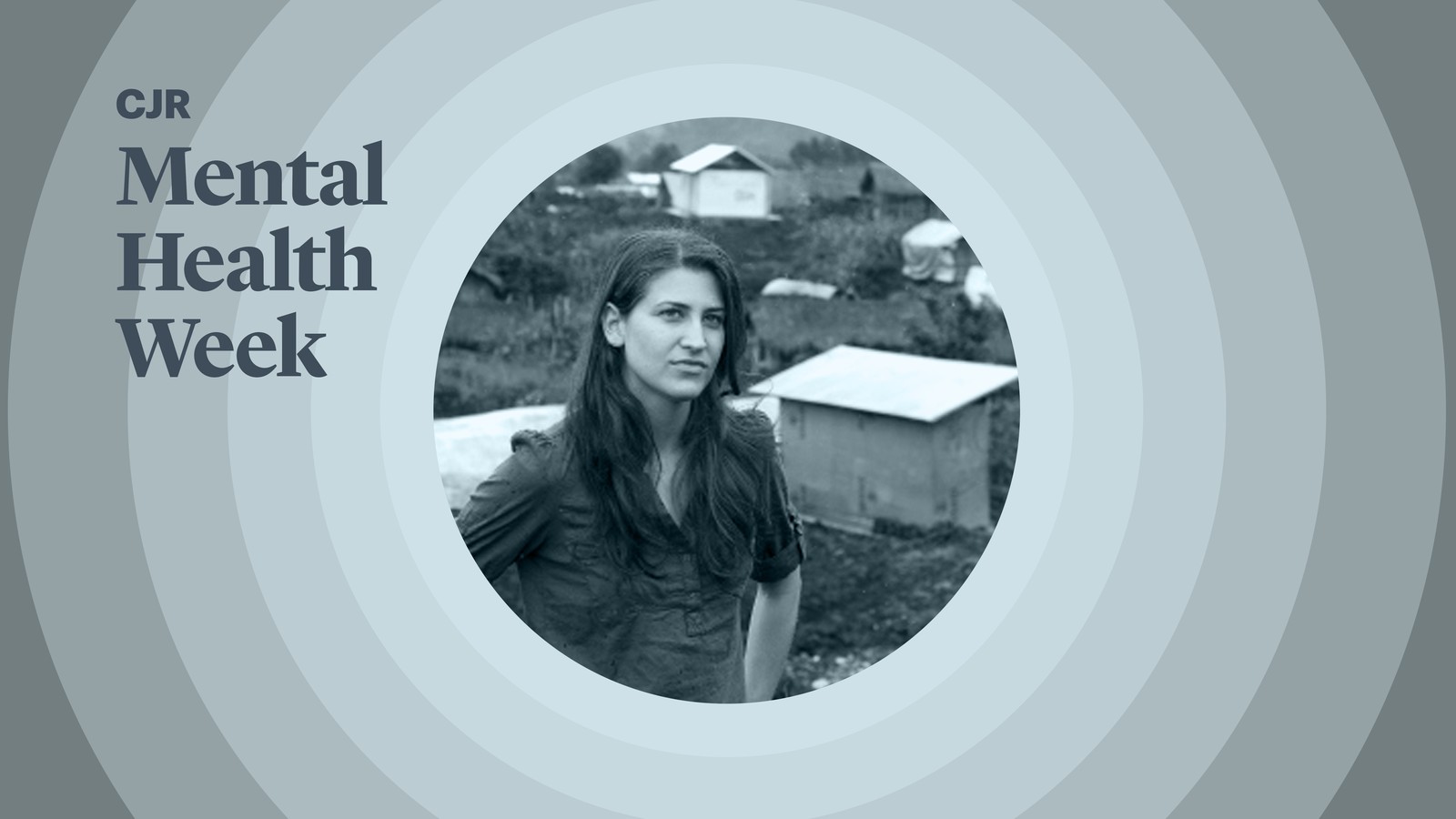Sign up for The Media Today, CJR’s daily newsletter.
Journalism is years behind other professions in how it deals with trauma. So this week, coinciding with Mental Illness Awareness Week, CJR is publishing a series of stories from members of the journalism community who’ve dealt with mental health, illness, or treatment. We asked each journalist the same two questions: 1) What has been the toll of the profession on your mental health, and how do you manage it? and 2) How can the industry work to better address the stigma still surrounding mental illness within the journalism community?
The first dispatch, from award-winning journalist and author Mac McClelland, is below. It’s been edited for length and clarity. McClelland is the author of Irritable Hearts: A PTSD Love Story, which chronicles her experiences with post-traumatic stress disorder. We’ll be publishing more firsthand accounts throughout the week. Special thanks to our friends at BuzzFeed who inspired this series.
On her personal experiences:
I was diagnosed with PTSD after a particular assignment [in Haiti]. I had a harrowing time and, no exaggeration, that series of events changed the entire course of my life. The way I dealt with it at the time was a mix. I drank a lot and went to therapy. I started to do the things that I needed to do to recover, and I also self-medicated because I had to survive. Luckily, the HR person where I worked (Mother Jones) pointed out to me that this was work-related and so we ended up getting me covered by my job, by the systems [Mother Jones] had in place for treatment.
It also changed the way I do my job. Ultimately, it’s really changed the way I approach assignments. I make sure that there is a level of self-care built into them. For some assignments, there is little or nothing that you can do on the ground. Assignments like that, I’ll make shorter. I can still get job done, but I won’t burn out. I’ll also make more space between the assignments I take, so I can fully reground and recover before I go back out on something. I also turn down assignments that are not the right fit for me emotionally. I recognize in hindsight, I could have been and should have been approaching my job that way to begin with. But that’s not a conversation where people are like, “Make sure you don’t burn out.” The whole thing about a journalist, the idea we have, is very hard-charging all the time. They can always be on. They’re inexhaustible. That reporters are not supposed to have feelings, or human bodies, or needs. That was how I was approaching my job before, and not surprisingly, I became wildly, unspeakably burned out, and was having pretty extreme mental health issues and struggles that I had to deal with for a long, long time. It was one of the most significant events of my life.
ICYMI: Police knock down, pepper-spray, arrest, and jail reporter for 13 hours
On fighting the stigma in journalism:
I think the first step to combatting stigma, no matter where you’re talking about, is conversation. That isn’t necessarily a top-down thing. I think more organically, it would be a matter of people in the newsroom, people having various experiences, just talking about them. It would happen more if there wasn’t fear of reprisal. I’ve been out about my own struggles, and strangers, other journalists, will regularly email me or get in touch, and say they’re having this sort of issue, but they don’t want to tell anybody because their job is really intense, and they’re afraid they’ll be taken off the beat. Or they’ll be given assignments they don’t want.
I’ve encountered other reporters who are writing things about mental health, and they will call me, and they’ll say, “Do you know other journalists who will talk? Because I’ve talked to other ones who don’t want to put their name on this.” Like they don’t want to be on the record as having, or being identified as having, any sort of mental health or emotional issues related to their work. They could be more out if editors and supervisors directly addressed the fact that they would not punish anyone. Punishment is a weird word and strong word, but that’s how it feels to journalists. It’s a form of punishment to have your job changed or have people think that [you] can’t do things. It’s like a denial, a refusal to engage with something. If you have someone, and this happened to me, say I need help and then your editor says something like, “You could do something else,” or “We could get someone else who can handle this.” That is potentially easier for them [as editors], but it builds stigma and fear.
It makes mental health in journalism not a problem, but your problem. If we just take you out of equation, the problem will go away, and we could put someone else on the project. You have to have a culture of acceptance and support. I know that’s a big ask, but then people would be less afraid. It would take some time. If it were a matter of policy, “We support people in these ways,” I think it would make a big difference.
CJR’s health care reporting is sponsored in part by a grant from the Commonwealth Fund.
ICYMI: The story behind a photo no one in the mainstream media wanted to publish
Has America ever needed a media defender more than now? Help us by joining CJR today.



